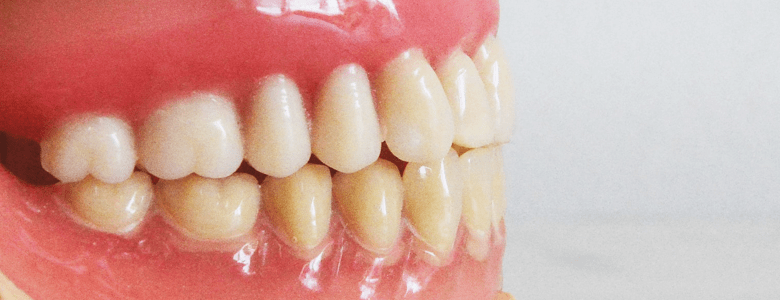
Handling Teeth Grinding-Key to Your Child’s Joyful Childhood
Introduction
Childhood is a time of carefree joy and boundless energy. However, some children experience a common but often overlooked issue that can disrupt their overall well-being: teeth grinding, medically known as bruxism. This involuntary habit of clenching or grinding teeth can have detrimental effects on a child’s oral health, sleep quality, and overall happiness. Understanding the causes, symptoms, and effective strategies for managing teeth grinding is crucial for parents and caregivers to ensure their child’s joyful and healthy childhood. Here at a new Petit Smiles article, we will delve with you into the world of teeth grinding and explore how to handle this condition with care and expertise. Remember to follow us on Instagram for more.
The Causes of Teeth Grinding
Teeth grinding can have various underlying causes, making it essential to identify and address them appropriately. Firstly, stress and anxiety are common triggers for bruxism in children. Academic pressure, social challenges, or even changes within the family dynamic can lead to increased tension and manifest as teeth grinding during sleep. Secondly, misaligned teeth or an abnormal bite can also contribute to the grinding habit. These dental issues create an uneven contact between the upper and lower teeth, prompting the child to grind them together in an attempt to find a comfortable position. Finally, lifestyle factors such as excessive caffeine consumption or the use of certain medications can also increase the risk of teeth grinding.
Recognizing the Symptoms
Detecting teeth grinding in children can be challenging since it often occurs during sleep. However, there are several signs that parents and caregivers can observe to identify this condition. One common symptom is a headache, particularly upon waking up in the morning. Additionally, a child may complain of jaw pain or tenderness, or exhibit facial swelling or muscle fatigue. Dental sensitivity, worn-down teeth, or even fractures can be indicators of teeth grinding as well. Parents should also pay attention to changes in their child’s sleep patterns, such as frequent tossing and turning, as this could be a result of bruxism. Regular dental check-ups are crucial for early detection of teeth grinding and to monitor any potential damage caused by this habit.
The Impact on Oral Health and Overall Well-being
Teeth grinding can have severe consequences on a child’s oral health and overall well-being. The excessive pressure exerted on the teeth can lead to enamel erosion, tooth fractures, and even tooth loss over time. The grinding motion may cause gum recession and increased tooth sensitivity, making it uncomfortable for children to eat or drink certain foods. Moreover, bruxism can interfere with a child’s sleep quality, leading to daytime fatigue, difficulty concentrating, and irritability. This can negatively impact their academic performance, social interactions, and overall enjoyment of daily activities. Therefore, addressing teeth grinding promptly is crucial to safeguard a child’s oral health and preserve their joyful childhood experience.

Strategies for Managing Teeth Grinding
When it comes to managing teeth grinding in children, a multi-faceted approach is necessary. Firstly, it is essential to identify and address the underlying causes. If stress and anxiety are contributing factors, helping your child manage their emotions through relaxation techniques, counseling, or engaging in stress-reducing activities can be beneficial. Additionally, consulting a pediatric dentist is vital to evaluate and treat any dental issues such as misaligned teeth or abnormal bite, which may be exacerbating the grinding habit.
Implementing a consistent bedtime routine can also promote better sleep hygiene, reducing the likelihood of teeth grinding episodes. Creating a calm and soothing environment before sleep can help relax the child and minimize stress levels. Avoiding stimulating activities, electronic devices, and caffeine consumption close to bedtime can contribute to better quality sleep.
Dental interventions, such as using a mouthguard or splint, can protect the teeth from grinding damage. These custom-made devices provide a barrier between the upper and lower teeth, reducing the impact of grinding and preventing further wear and tear. Regular dental check-ups and cleanings are essential to monitor the child’s oral health and ensure that any signs of teeth grinding are addressed promptly.
| Strategies | Description |
|---|---|
| Identify Underlying Causes | Explore potential causes such as stress, anxiety, misaligned teeth, abnormal bite, and lifestyle factors. |
| Address emotional factors through relaxation techniques and counseling. | |
| Consult a pediatric dentist for evaluation and treatment of dental issues. | |
| Establish Bedtime Routine | Create a consistent and calming routine before bedtime. |
| Minimize stimulating activities and avoid caffeine consumption close to bedtime. | |
| Dental Interventions | Consider using custom-made mouthguards or splints to protect teeth from grinding damage. |
| Regularly visit a pediatric dentist for check-ups and monitoring. | |
| Promote Good Sleep Hygiene | Encourage healthy sleep habits, including a conducive sleep environment and regular sleep schedule. |
| Limit screen time and electronic device use before bedtime. | |
| Ensure a comfortable and relaxing sleep environment. |
Conclusion
Teeth grinding can pose significant challenges for children, affecting their oral health, sleep quality, and overall well-being. By understanding the causes, recognizing the symptoms, and implementing effective management strategies, parents and caregivers can help their children overcome this habit and enjoy a joyful and carefree childhood. By prioritizing their dental health, children can smile confidently and embrace the wonders of their formative years.
If you still find that your child has not stopped grinding their teeth, book your appointment with Petit Smiles-The Best Pediatric Dentist in Coral Gables and Doral. Our Pediatric Dentists will examine your child and give a perfect solution to help keep a never-ending smile on your child’s face.


